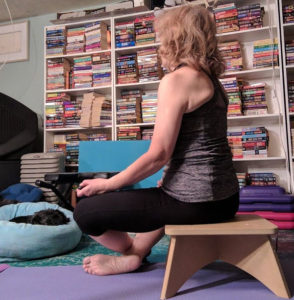
In these uncertain times, we’re scared, we feel lost. The only way we’re going to get through this is to grow our resilience. One sure way to do that is to increase our optimism.
Most of the country is sheltering in place now, to try to “flatten the curve” of the COVID-19 virus. There’s no cure, it spreads like wildfire, and it’s dangerous to many who catch it.
The economy has come to a standstill, since many businesses are closed. Restaurants and theaters are closed. People aren’t buying anything (except, perhaps toilet paper and hand sanitizer). We’re told to maintain “social distancing” – stay at least 6 feet away from others.
It’s scary and we don’t know when it will end.
But it will end. One day, hopefully soon. And to get beyond this time with anything approaching normalcy, it’s crucial to grow our resilience. To come out stronger and happier.
How do we grow our resilience? One sure-fire way is to increase our optimism. When we’re optimistic, we feel happier and more able to look forward.
So, how do we increase our optimism? One sure-fire way is to exercise. The endorphins that are released help, and the increased oxygen and blood-flow are supporters too. I know, personally, that I always feel better after a workout.
Today I did a Yoga practice. Nothing too strenuous because it had been a while since I did Yoga, and I didn’t want to feel it for days afterward. But it sure felt great today.
Another way to feel happier and more optimistic is to put on some favorite tunes and move. Just get moving. The music and the movement all contribute to feelings of optimism and well-being.
Go for a walk. Pet your dog. Read a good book. Make your favorite meal (not too calorie-laden, though!). You’ll feel better.
And every time you do, you’ll increase your optimism that much more and grow your resilience.

